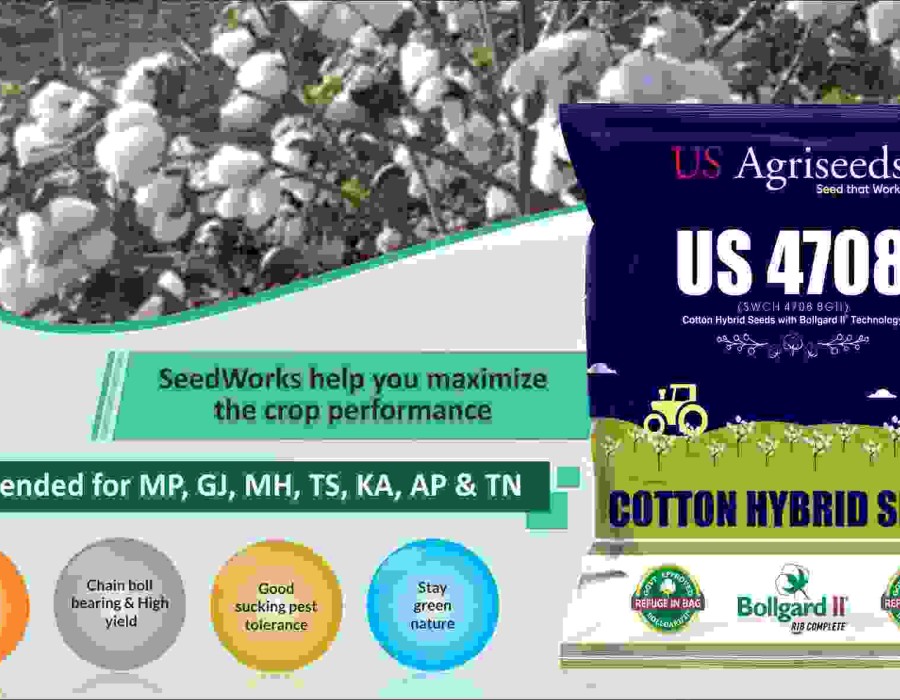India, being one of the largest cotton producers globally, faces a growing challenge as climate change increasingly disrupts agricultural practices. Rising temperatures, unpredictable rainfall, and extreme weather events pose significant risks to crop yields, particularly for cotton, which is highly sensitive to environmental conditions. As such, cotton seed companies in India have been working diligently to develop strategies and technologies that help farmers adapt to these changes and continue producing this crucial crop. This article explores how these companies are responding to the climate crisis and supporting the agricultural community in India.
The Impact of Climate Change on Cotton Farming
Cotton, often referred to as the "white gold" of India, is a vital cash crop for millions of farmers. However, the effects of climate change—such as rising temperatures, irregular rainfall, and extended drought periods—are threatening the cotton-growing regions across the country. These environmental shifts are making cotton farming more unpredictable and challenging, requiring farmers to find new ways to manage their crops.
Focus on Drought Resistance
One of the most pressing concerns for cotton farmers in India is water scarcity. Many cotton-growing regions in India are prone to droughts, and inconsistent rainfall patterns make irrigation difficult. In response, cotton seeds company in India have invested heavily in developing drought-resistant varieties of cotton seeds. These seeds are genetically modified or bred to withstand prolonged periods of low water availability, ensuring that farmers can still harvest a crop even in challenging conditions.
Developing Pest and Disease Resistant Varieties
Changes in temperature and rainfall patterns also contribute to the rise of pests and diseases, which can severely affect cotton crops. Cotton seed companies have been focusing on developing pest-resistant varieties of cotton seeds, using both traditional breeding techniques and modern biotechnology. These varieties are designed to reduce the need for chemical pesticides, which can harm the environment and human health, while also improving crop yields.
Improved Cotton Seed Quality
Quality of seeds plays a crucial role in determining the success of any crop. As the climate continues to change, cotton seed companies in India are placing a greater emphasis on ensuring that their seeds are of the highest quality. This includes enhancing seed vigor, which helps cotton plants grow stronger and more resilient, especially in adverse weather conditions. High-quality seeds also promote uniformity in crop development, making it easier for farmers to manage their fields.
Precision Agriculture and Data-Driven Solutions
The integration of technology in agriculture has become essential as the effects of climate change intensify. Cotton seed companies are increasingly leveraging data-driven solutions, such as satellite imagery, weather forecasting, and soil moisture sensors, to provide farmers with actionable insights. By using these technologies, farmers can make more informed decisions about when to plant, irrigate, and harvest, minimizing the risks posed by changing climatic conditions.
Promoting Sustainable Farming Practices
Cotton farming in India is often associated with high water usage and pesticide reliance. However, cotton seed companies are encouraging farmers to adopt more sustainable farming practices as part of their response to climate change. These practices include crop rotation, reduced use of chemical fertilizers and pesticides, and better soil management. By promoting these techniques, companies are helping farmers to lower their environmental footprint and ensure the long-term viability of cotton farming in India.
Collaboration with Agricultural Research Institutions
To stay ahead of climate-related challenges, cotton seed companies in India are collaborating with agricultural research institutions and universities. This partnership allows for the development of new seed varieties and farming techniques that are better suited to the changing climate. By working with experts in plant science, soil health, and pest management, these companies can create more robust and climate-resilient solutions for farmers.
Farmer Education and Training Programs
Despite the availability of new seed varieties and technologies, the adoption rate among farmers is not always high due to a lack of awareness and resources. Recognizing this challenge, cotton seed companies are investing in farmer education and training programs. These programs help farmers understand the importance of climate-adapted seeds, as well as best practices for pest control, irrigation, and fertilization. By building knowledge and capacity among farmers, these companies are ensuring that their innovations are put to the best use.
Financial Support and Risk Management
The financial risks associated with climate change, such as crop failure due to extreme weather events, can be devastating for cotton farmers. To mitigate these risks, cotton seed companies in India are offering financial support and risk management tools to farmers. This may include crop insurance, access to low-interest loans, and partnerships with banks and government bodies to provide financial assistance in times of crisis. By easing the financial burden, these companies are helping farmers weather the impact of climate-related challenges.
Conclusion
The cotton industry in India stands at a crossroads as climate change continues to reshape the agricultural landscape. Cotton seeds company in India have recognized the urgency of adapting to this new reality, and they are responding with a range of innovative solutions. From drought-resistant seeds to sustainable farming practices, these companies are helping farmers cope with the challenges of a changing climate. However, the full potential of these efforts can only be realized through continued investment in research, technology, and farmer education. By working together, the agricultural sector in India can ensure that cotton remains a vital and sustainable crop for generations to come.






Comments